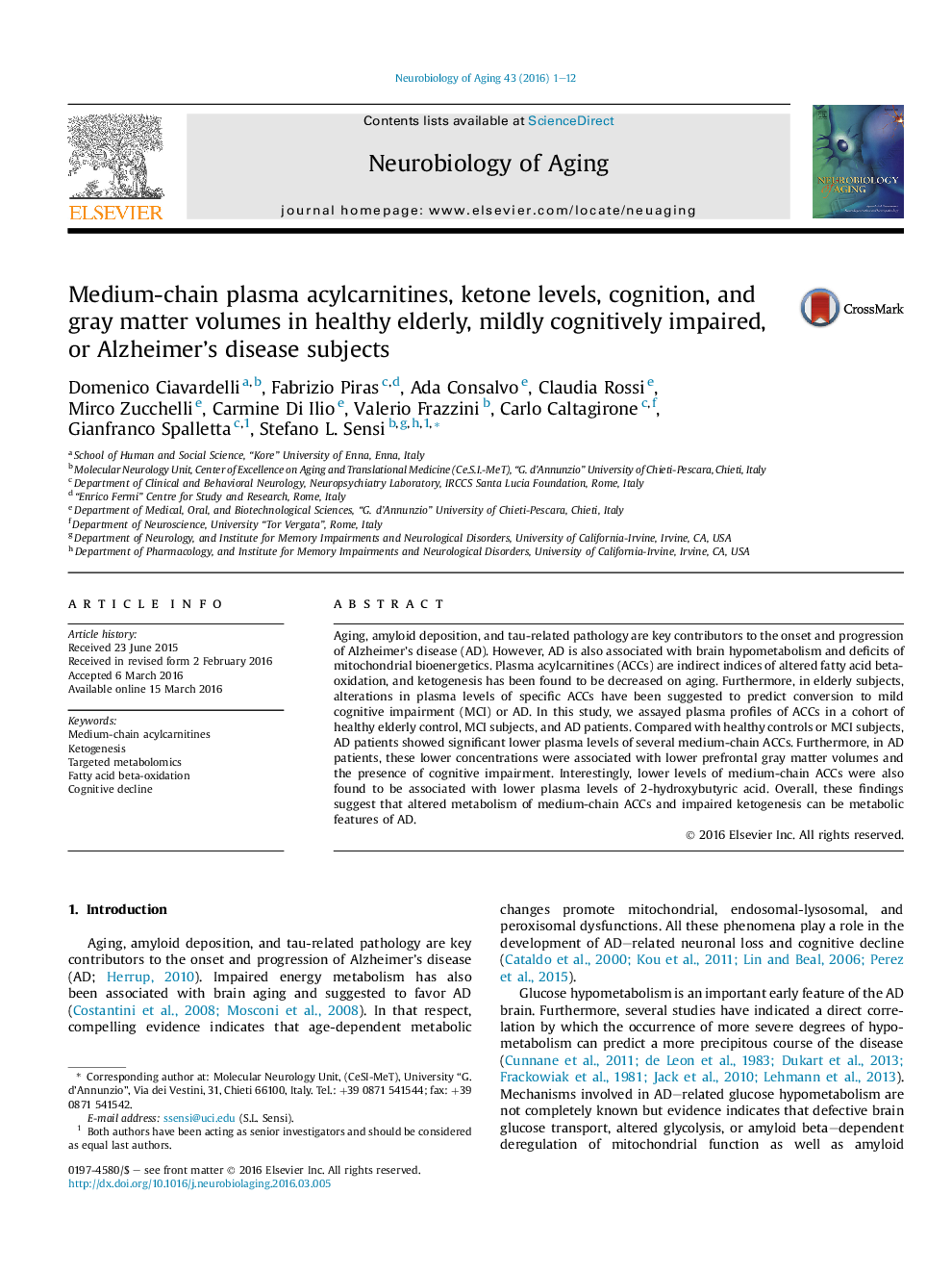| Article ID | Journal | Published Year | Pages | File Type |
|---|---|---|---|---|
| 330452 | Neurobiology of Aging | 2016 | 12 Pages |
Aging, amyloid deposition, and tau-related pathology are key contributors to the onset and progression of Alzheimer's disease (AD). However, AD is also associated with brain hypometabolism and deficits of mitochondrial bioenergetics. Plasma acylcarnitines (ACCs) are indirect indices of altered fatty acid beta-oxidation, and ketogenesis has been found to be decreased on aging. Furthermore, in elderly subjects, alterations in plasma levels of specific ACCs have been suggested to predict conversion to mild cognitive impairment (MCI) or AD. In this study, we assayed plasma profiles of ACCs in a cohort of healthy elderly control, MCI subjects, and AD patients. Compared with healthy controls or MCI subjects, AD patients showed significant lower plasma levels of several medium-chain ACCs. Furthermore, in AD patients, these lower concentrations were associated with lower prefrontal gray matter volumes and the presence of cognitive impairment. Interestingly, lower levels of medium-chain ACCs were also found to be associated with lower plasma levels of 2-hydroxybutyric acid. Overall, these findings suggest that altered metabolism of medium-chain ACCs and impaired ketogenesis can be metabolic features of AD.
